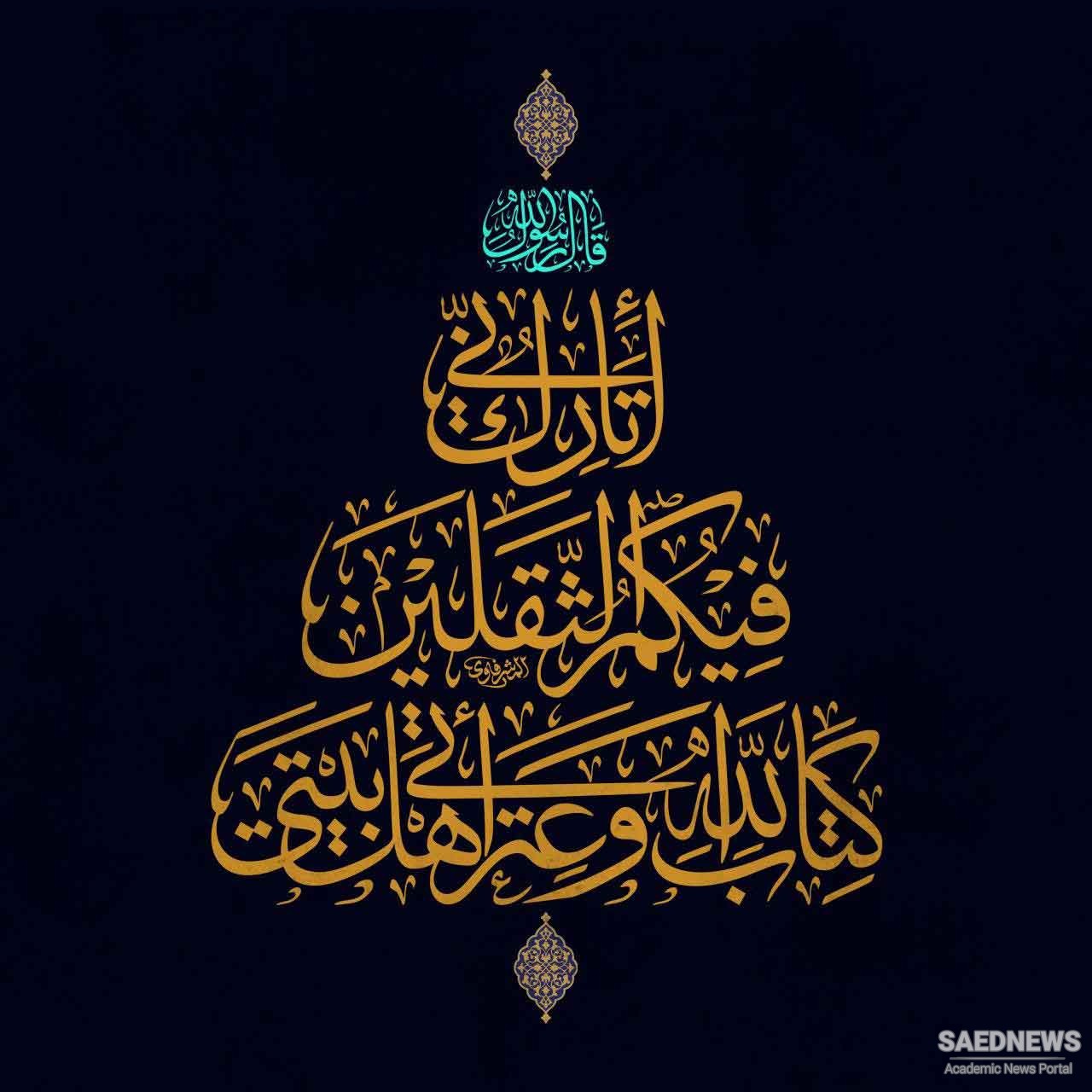Ali’s role as a warrior is but one of many factors making for his unique place in the Islamic tradition. Of much greater significance is his proximity, in all respects, to the Prophet, and the wisdom and sanctity flowing from this proximity. Ali was given the immense honour of marrying the Prophet’s daughter, Fatima, considered to be the most saintly woman in Islam, along with her mother, the Prophet’s first wife, Khadija. One of the epithets bestowed on Fatima in the tradition is ‘Confluence of the Two Lights’—the two lights of Nubuwwa (prophecy) and of Walaya (sanctity). Ali was thus, after the Prophet, the leader of what was known as the Ahl al-Bayt, ‘the People of the House or Prophet’s Household’, that is, the family of the Prophet. The Ahl al-Bayt are referred to in an important Quranic verse as being purified of all defilement: ‘God only wisheth to remove from you all impurity, O People of the House, and to purify you with a complete purification’ (33: 33). According to several of the most important early sources, the Prophet called for Fatima, Ali and their two sons, Hassan and Husayn, and said, ‘This is my Ahl al-Bayt’. On one occasion, according to most sources, the Prophet took these members of his family under his cloak and recited the words of this verse. This event took place when a Christian delegation from Najran was engaging in religious debate with the Prophet, and a verse was revealed indicating that a challenge of mutual imprecation (Mubahila) be made to the Christians. The Prophet brought the four persons mentioned above for this Mubahila, but the Christians declined the challenge (Source: Justice and Remembrance).


 Imam Ali the True Follower of the Heavenly Mentor
Imam Ali the True Follower of the Heavenly Mentor














































